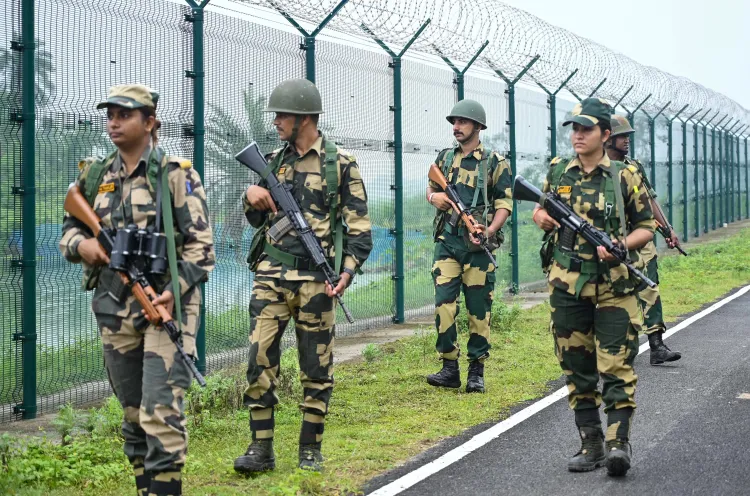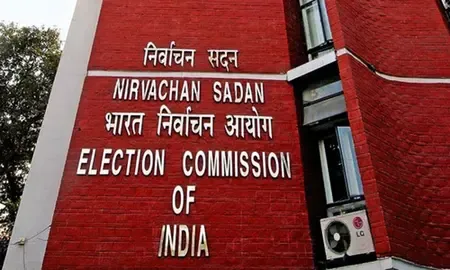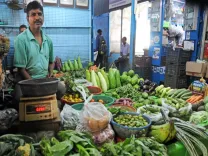Why Did India Stop Diwali Sweets Exchange with Pakistan Rangers?

Synopsis
Key Takeaways
- India refrains from Diwali sweets exchange with Pakistan Rangers.
- Union Home Ministry directs BSF to halt traditional gestures.
- Suspension follows April's terrorist attack in Pahalgam.
- Heightened vigilance replaces customary camaraderie.
- No peace gestures amid ongoing cross-border terrorism.
Jaipur, Oct 21 (NationPress) In a significant move, India has once again chosen not to offer sweets to the Pakistan Rangers during Diwali, following a similar decision made on Independence Day. The Union Home Ministry has instructed the Border Security Force (BSF) to refrain from the customary exchange of sweets at the Indo-Pak border this year.
As a result of these directives, no sweets were shared at the Rajasthan border posts in Sriganganagar, Bikaner, Jaisalmer, and Barmer, where BSF personnel are stationed.
For many years, soldiers from both India and Pakistan have exchanged sweets and well-wishes during notable national and religious occasions like Independence Day, Republic Day, Holi, Diwali, and Eid — a gesture representing goodwill and mutual respect despite ongoing tensions.
However, this long-standing tradition was put on hold following the tragic terrorist attack in Pahalgam on April 22, which claimed the lives of 26 individuals at the hands of Pakistan-based terrorists in Jammu and Kashmir's Baisaran meadow. This incident prompted the Union government, under Prime Minister Narendra Modi's leadership, to adopt a more stringent approach towards Pakistan due to its anti-India activities.
The suspension of sweet exchanges began on August 15 and has now been extended to Diwali. A senior security official emphasized that the message from New Delhi to Islamabad is unmistakable — “as long as cross-border terrorism persists, such symbolic gestures will not take place.”
In previous years, the sharing of sweets between the BSF and Pakistan Rangers was seen as a small yet meaningful step towards fostering peace and camaraderie. On occasions such as Meethi Eid, Eid al-Adha, and Diwali, both sides would traditionally meet at the border's zero point to exchange trays of sweets. However, this Diwali saw a quiet Rajasthan frontier.
This year, there were no handshakes or exchanges of sweets between the two nations. Instead of the usual camaraderie, heightened vigilance prevailed, underscoring India’s unwavering policy and message to Pakistan that peace gestures cannot coexist with terrorism.
"Following August 15th, India has maintained its no-sweets policy amid escalating cross-border tensions," officials stated.









